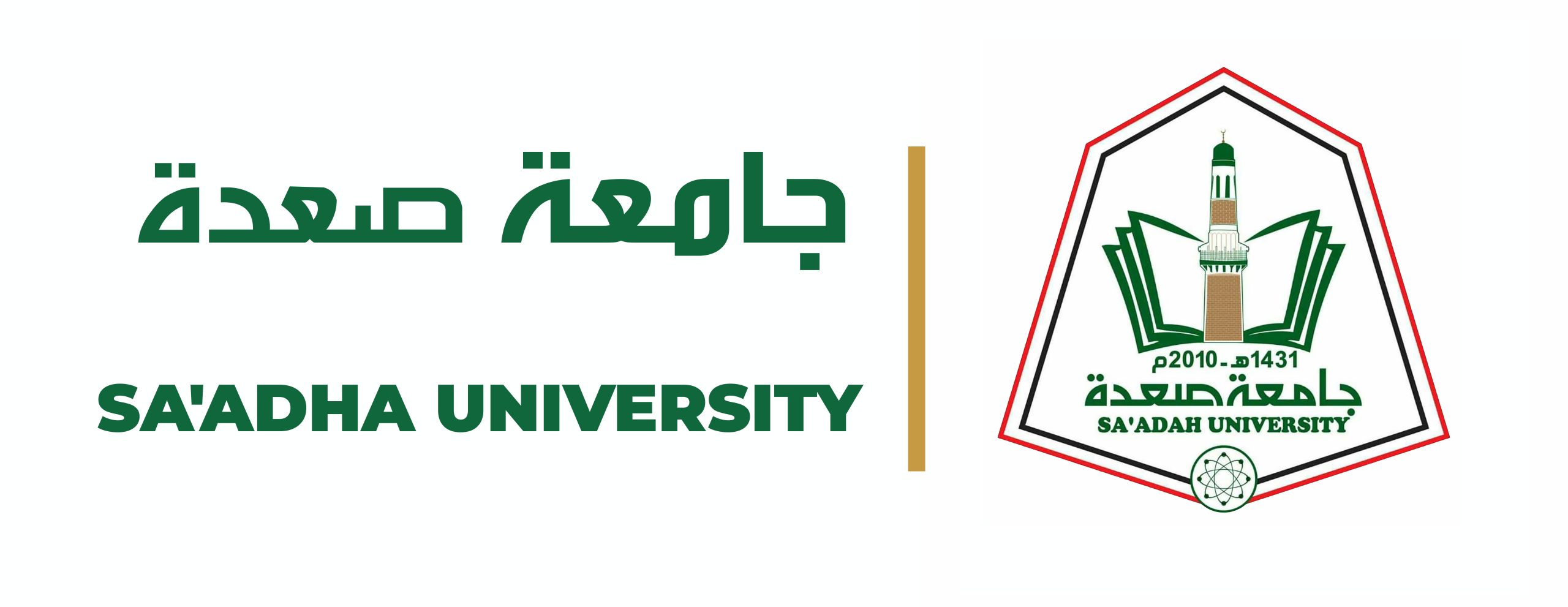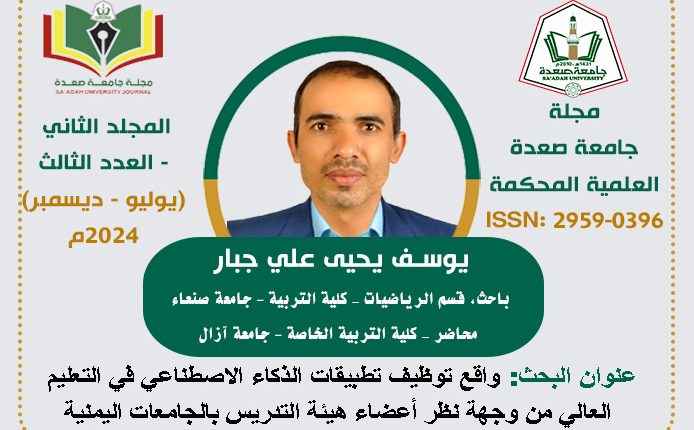واقع توظيف تطبيقات الذكاء الاصطناعي في التعليم العالي من وجهة نظر أعضاء هيئة التدريس بالجامعات اليمنية
واقع توظيف تطبيقات الذكاء الاصطناعي في التعليم العالي من وجهة نظر أعضاء هيئة التدريس بالجامعات اليمنية
يوسف يحيى علي جبار
باحث، قسم الرياضيات – كلية التربية – جامعة صنعاء
محاضر – كلية التربية الخاصة – جامعة آزال
E-mail: yousifga2011@gmail.com
ملخص البحث:
هدف البحث إلى التعرف على واقع توظيف أعضاء هيئة التدريس بالجامعات اليمنية لتطبيقات الذكاء الاصطناعي التي يمكن استخدامها في العملية التعليمية، والتحديات التي تواجه توظيفها في التعليم العالي. واعتمد البحث على المنهج الوصفي المسحي. وتكونت عينة البحث من (114) فردًا، تم اختيارهم بالطريقة العشوائية من أعضاء هيئة التدريس بجامعتي صنعاء وصعدة. وتكونت أداة البحث من استبانة تحتوي على (41) عبارة، موزعة على ثلاثة محاور.
وأظهرت نتائج البحث أن درجة توظيف أعضاء هيئة التدريس لتطبيقات الذكاء الاصطناعي في التعليم العالي جاءت بدرجة (منخفضة). كما أن أهمية توظيف تطبيقات الذكاء الاصطناعي كانت بدرجة (عالية). في حين جاءت تحديات توظيف تطبيقات الذكاء الاصطناعي في التعليم العالي بدرجة (عالية). كما كشفت النتائج عدم وجود فروق ذات دلالة إحصائية عند مستوى دلالة (0.05>α) في متوسط استجابة أفراد العينة على أداة البحث تعزى إلى متغير (الجامعة، نوع الكلية، النوع الاجتماعي، الدرجة العلمية، سنوات الخبرة). وفي ضوء النتائج قدم البحث عدة توصيات ومقترحات.
الكلمات المفتاحيّة: تطبيقات الذكاء الاصطناعي، التعليم العالي، الجامعات اليمنية، أعضاء هيئة التدريس.
اضغط هنا لتصفح أو لتنزيل البحث
The Utilization of Artificial Intelligence Applications in Higher Education Perspectives of Faculty Members in Yemeni Universities
Yuosif Yahya Ali Jabbar
Researcher, Mathematics Department, College of Education – Sana’a University
Lecturer, College of Special Education – Azal University
E-mail: yousifga2011@gmail.com

